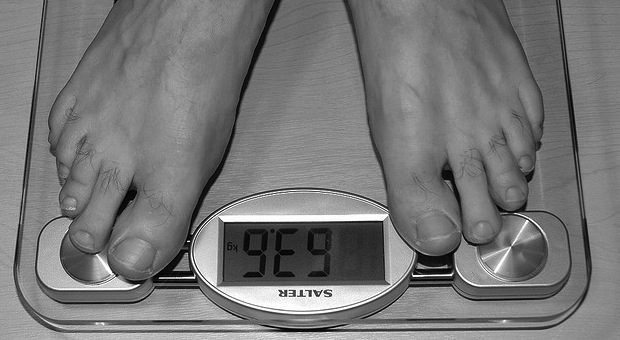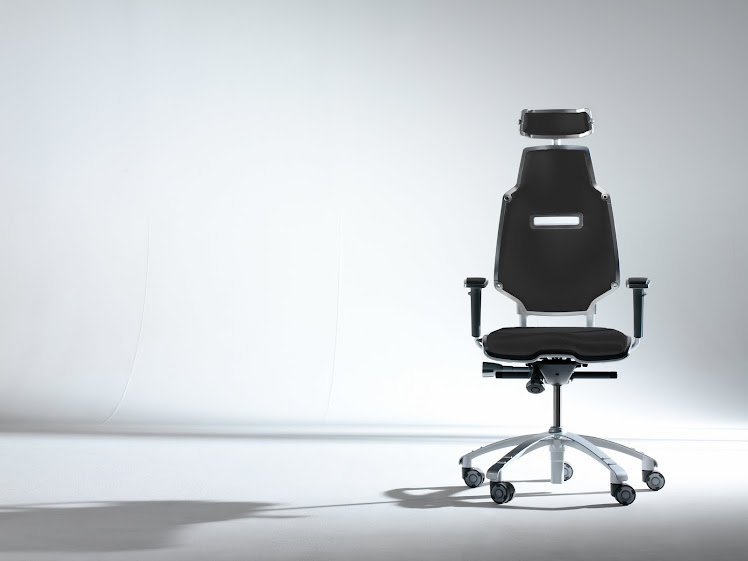Former Google exec Adam Bosworth is helping companies save money on health care by gamifying exercise and nutrition as coworkers compete for cash prizes. 'We’re trying to change health habits in a very fundamental way,' he tells us.

The reward of living longer, healthier lives hasn't been enough to incentivize too many Americans into exercising or eating well--a lifestyle choice wreaking havoc on employee productivity and health care costs. But former Vice President of Product Management at Google, Adam Bosworth, has found success encouraging healthy habits by stopping the lecturing and turning wellness into a game, through a workplace wellness platform called Keas (pronounced 'Key-ahss'). He spoke with Fast Company about what he believes are the psychological keys to motivating healthy living--and, how these are making up for the failed Google Health project.
Bosworth argues that Keas separates itself from the competition by only
counting sustained engagement. Measuring the number of initial signups
or those who only log on a few times is not helpful. Instead, he says: 'We’re trying to
change health habits in a very fundamental way.'
Keas outfits workplaces with an opt-in healthy competition software platform, where individuals or teams vie to rack up points by completing tasks such as walking to work, eating healthier, or learning about nutrition. Winners earn badges and take home mid-sized prizes, including cash and gifts.
[youtube P1nDUCNj9-0]
Keas boasts that, on average, roughly 35% of an entire company's staff plays the full 12-week program. After only three months of testing, Bosworth admits they have insufficient data on life-long lifestyle changes, but the demand has been so strong that his team is now building a program for gung-ho employees who want to continue long after the workplace game ends.
For Bosworth, gamifying health needs to be consistent with 'human nature.'
Come for the reward, stay for the people
Rewards are 'what brings people to the game, but it's not what sustains them; it's not what keeps them there, it’s too little money,” argues Bosworth. Rather, it's the exhilaration of team competition and the support of coworkers that keeps employees committed. More than age or sex, 'the one thing that had a dramatic effect on engagement was being a member of a team.'
Bosworth says that teams of six are large enough to exert social pressure, but small enough so that everyone can keep tabs on each other. 'Peer obligation is a very important psychological factor in the game,” he says.
Bosworth thinks that Google Health ultimately failed because it wasn't social. 'It
wasn't actually a place you wanted to go to. It wasn't fun. It wasn't a
place to hang out with others dealing with the same issues. Nobody was
cheering you on as you made progress or encouraging you during
setbacks.'
In addition to swapping nutritional tidbits over lunch and encouraging a struggling peer to press on, our colleagues' actions are socially contagious. Seeing a sweat-dripped coworker arrive energized to work shows us the person we could have been if we had chosen to walk to work. On the darker side, if everyone orders dessert after Friday happy hour, the temptation to cheat may break those struggling to maintain healthy eating habits. An environment overflowing with Keas participants can snatch up stragglers who don't want to be left out of the fun.
Be like Richard Simmons: Keep it positive
Bosworth learned early on that the carrot was far more effective than the stick: Biting reminders of obesity caused users to bolt. 'Rather than causing people to wake up and suddenly be motivated and see the light and say, ‘Oh, I must fix this,’ they were gone in 60 seconds.'
Gorging is about cheap, immediate gratification--not nutritional needs or, sometimes, even taste. To prove this, one clever experiment mapped the density of fast food restaurants around participants and found that, unsurprisingly, one of the greatest predictors of whether employees grabbed a greasy snack was impulsivity, or “reward sensitivity.” Likewise, Bosworth found that tiny incentives were enough to satiate the reward-itchy fingers of his obese users: 'Now that we’ve made the thing entirely positive feedback, people love it and they stick around.'
Surprise: Quizzes are a reward
A recent meta-review of video games
for workplace training found that games can be more effective than
traditional training alone, which is precisely how ice cream retailer
Cold Stone Creamery saved itself money through an interactive game
showing employees how to reduce the amount delicious of ice cream they
served up. 'One of the advantages of games is that they are
intrinsically motivating, resulting in employees choosing to repeatedly
engage in game play and mastering the skills,' author Traci Sitzmann
told ScienceDaily.
'Quizzes are not a cost, they are a reward,' says Bosworth. His team believed they had created a cheap, endless pool of bonus rewards when they crafted 60 nutritional quizzes. 'Four days after we launched the game, we had customers besieging us with emails saying they were out of bonus points,' he says. 'We realized they’d done all 50 or 60 quizzes; they’d done them in four days and they wanted more.'
Advice: Hire a psychologist
'Frankly, those of us who designed software were not psychologists,' he admits. Applying intuitive understandings of human behavior to their programs ended up backfiring.
Negative feedback, for instance, seems like a time-tested way to kick people into action, but few studies support it, as research finds that punishment is good for stopping behavior, but not for replacing it with desired actions: 'A big change for us was when we put a psychologist in charge.'
[Image: Flickr user xJasonRogerx]
Follow Greg Ferenstein on Twitter. Also follow Fast Company on Twitter.
Read More:
Arookoo, The Depressing App That 'Makes Walking Fun'

No comments:
Post a Comment